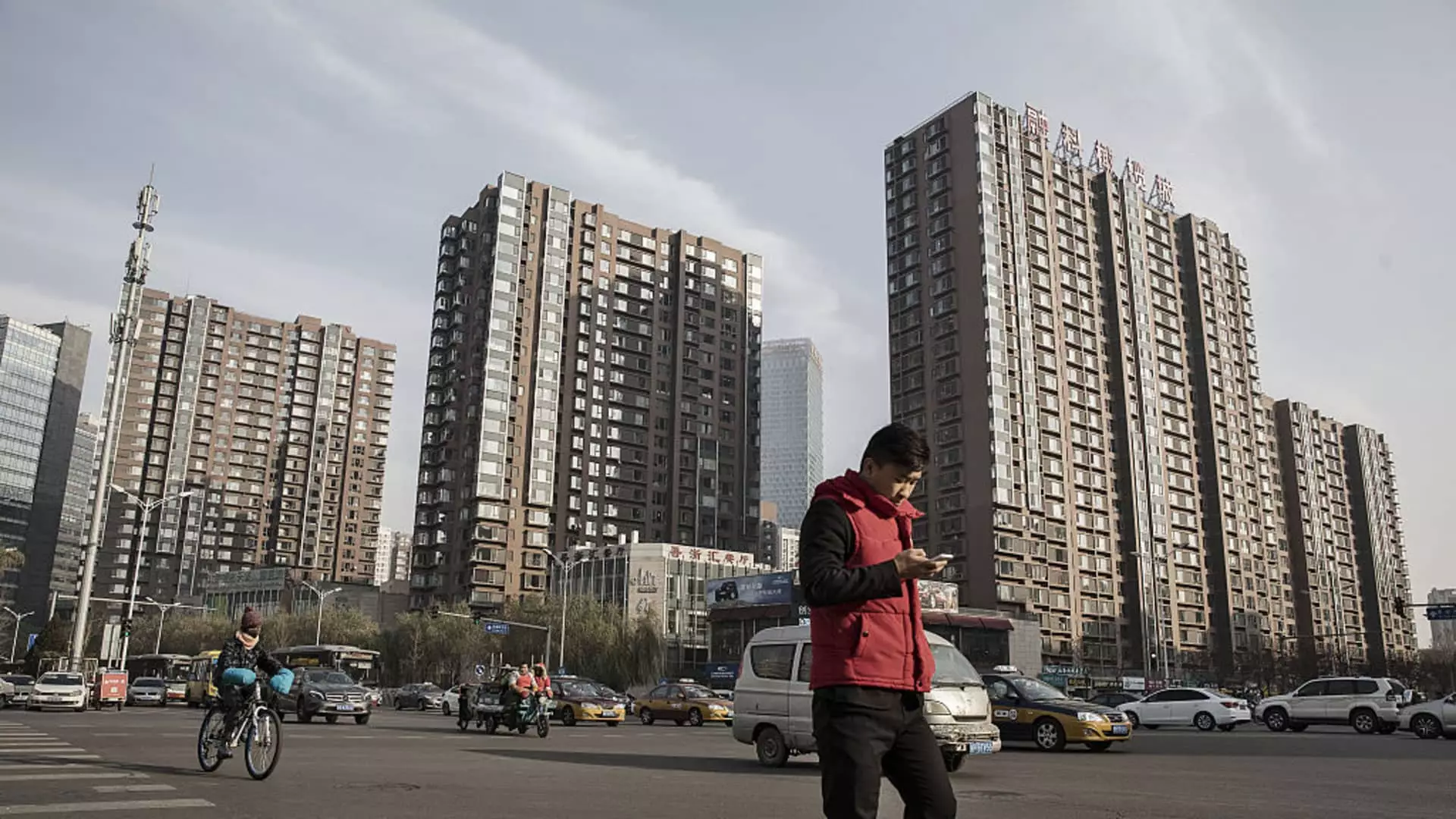In a significant move signaling a potential revival for China’s beleaguered real estate sector, officials have unveiled plans for enhanced financial support targeting projects categorized under a special “whitelist.” The housing ministry’s recent announcements aim to bolster confidence and rejuvenate economic vitality in a market that has been grappling with unprecedented challenges. With commitments totaling over 4 trillion yuan (approximately $561.8 billion) for these prioritized developers, this initiative is indicative of China’s broader strategy to re-stabilize its economy.
China’s real estate sector, which once constituted more than 25% of its GDP, has faced severe turbulence since the government initiated measures to regulate high debt levels among developers in 2021. This shift has triggered a wave of defaults from major real estate firms and left countless housing projects in limbo. As a result, buyer sentiment plummeted, resulting in significant declines in home sales and prices. The precarious state of this industry necessitated a policy response that would address both the immediate financing needs of developers and the overarching economic concerns tied to housing instability.
China’s latest strategies extend beyond just flooding the market with cash. Officials have also empowered local governments to issue special bonds dedicated to land purchases. Additionally, they have made allowances for existing housing inventory to qualify for affordable housing subsidies, broadening the scope of financial aid. This tactical flexibility is designed to stimulate demand by making housing more accessible while simultaneously revitalizing stalled projects.
The timing of these announcements coincides with a notable push from various Chinese cities to lift previous restrictions on property purchases. Noteworthy cities like Guangzhou, Beijing, and Shanghai have implemented measures that not only ease restrictions for first-time buyers but also incentivize non-local buyers with reduced down payment requirements. This multi-pronged approach is crucial for rekindling buyer interest in a market that has seen new home prices plummet—reportedly dropping by over 6% in August alone.
Investor sentiment surrounding these developments has been markedly positive, with Chinese property stocks experiencing a notable rally. The Hang Seng Mainland Properties Index saw a commendable rise of over 2%, reflecting a renewed optimism among investors who had grown wary after witnessing the sector’s prolonged downturn. While the market’s reaction is encouraging, it exists within a context of volatility where investor confidence fluctuates in response to the government’s perceived efficacy in delivering substantial economic relief.
Comments from financial regulators and housing ministry officials hint at a belief that a more hands-on government approach can provide the necessary lift to the flailing sector. These pronouncements, including a notable 50 basis-point cut to the reserve requirement ratio for banks and the reduction in down payment ratios, exemplify a willingness to adapt monetary policy to restore market health.
While the recent policy shifts could provide a temporary boost, the complexities surrounding China’s real estate market remain stark. Continued skepticism regarding governmental stability and transparent economic forecasts will likely shape future investor behavior. Moreover, the limited window for these measures to effect meaningful change will loom large as analysts predict reassessment of strategies if desired outcomes do not materialize promptly.
As Chinese officials strive to balance softening an economic downturn with prudent fiscal management, the intrinsic risks tied to excessive borrowing and speculative practices will require careful navigation. The ramifications of these interventions could reshape the economic landscape, but only time will tell if these efforts lead to a sustained recovery for the real estate market.
The commitment to revitalizing the real estate sector through financial support highlights a pivotal moment for China’s economy. Although recent measures signal optimism, stakeholders must remain cautious and vigilant, understanding that the road to recovery will be fraught with hurdles. The effectiveness of these strategies in rebuilding buyer confidence and stablizing market dynamics will be pivotal in determining the ultimate fate of the Chinese property sector in the years to come. The coming months will be critical, as the implementation and repercussions of these initiatives unfold.

